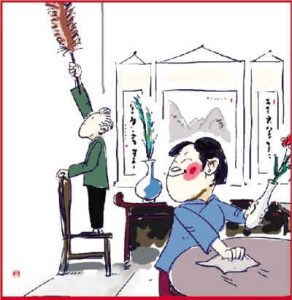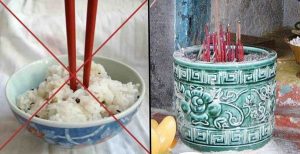Title: Sweeping and Cleaning on Chinese New Years

General Information about Item:
- Genre and Sub Genre
- Verbal Folklore: Good luck/ bad luck superstition
- Customary Folklore: tradition
- Language: English
- Country where Item is from: China
Informant Data:
- The informant was born in Shanghai, China and moved to the U.S. when he was 4 years old. He has since lived in Baltimore, Maryland. The informant currently goes to school at Dartmouth College, and is a sophomore studying economics and government.
Contextual Data:
- Social Context: The informant learned this good luck/ bad luck superstition from his parents and observing them during Chinese New Years. The informant’s parents always dusted and cleaned the house the days leading up to Chinese New Year and told the informant and his brother to do the same, but never on Chinese New Year.
- Cultural Context: The new year brings good fortune and prosperity to a clean home. However, dusting a room during the new year would mean dusting away the good fortune and prosperity, leaving only misfortune.
Item:
- Dusting with a broom on Chinese New Years is considered bad luck. A dirty house on Chinese New Years will lead to misfortune and disaster for the upcoming year.
Associated file (a video, audio, or image file):
Transcript of Associated File:
Informant’s Comments:
- This is a sign of a homeopathic connection because the messy, unkempt room manifests itself onto the person so he/ she too will be messy and unkempt, and will not be able to receive the good tidings that come to a clean home.
Collector’s Comments:
- It is interesting that this particular piece of folklore is on one hand a good luck/ bad luck superstition and on the other hand, a long held tradition in many Chinese families.
Collector’s Name: Leo Lei
Tags/Keywords:
- good/ bad/ luck/ Chinese/ new/ years/ year/ beginning/ wealth/ prosperity/ broom/ dusting/ dust/ clean/ cleaning/ messy/ unkempt/ misfortune/ disaster/ tradition




